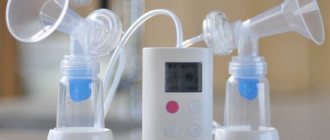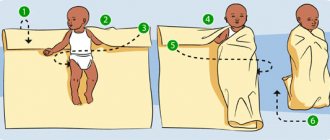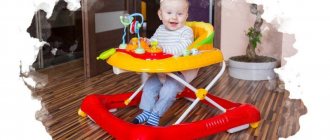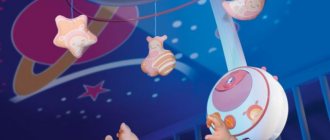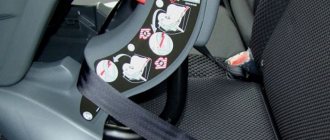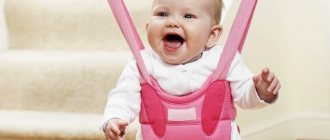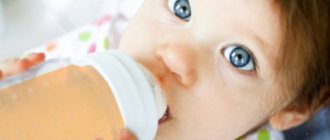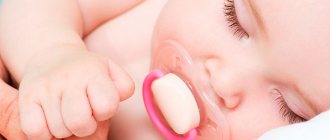No need, that's all!
Pediatric dentists were the first to worry: prolonged use of a pacifier leads to an incorrect bite (experts call it an open bite). The incisors grow forward and do not close, the child’s face becomes deformed, acquiring an elusive resemblance to a rabbit’s face. In addition, a nipple that is too hard (without an air release valve at the base) or too large disrupts the development of the jaws. Today, pacifiers are produced in three sizes - for children up to 4 months, up to a year and up to 1.5 years. However, it is better not to use the latter! Speech therapists also complain: due to dental problems caused by too close friendship with the pacifier, the child has difficulties in pronouncing many sounds. Neurologists are also unhappy: in their opinion, the pacifier inhibits the baby’s mental development. Experts in childhood infections join the general chorus: the older the child, the more difficult it is to keep the pacifier clean. If he already moves around the apartment independently, begins to walk at home and on the street, mommy may not notice that the baby dropped the pacifier, and then picked it up and put it in his mouth. Or he simply pulled it out, twirled it in his dirty hands and sent it back. And then parents and doctors are perplexed: why does the baby have an intestinal disorder? The most radical opponents of the pacifier argue that a child is quite capable of doing without it, that adults themselves impose on him the bad habit of constant sucking, which they then cannot wean a grown child from. Indeed, some children immediately categorically reject the pacifier, and the question immediately goes away on its own. However, most babies still make it clear that they need it, and if it is not there, they begin to suck their own fist, tongue, sponge, cheek, tip of a diaper, collar of a blouse, and they do this mainly when they feel uneasy...
Harm from pacifiers
It has a negative impact on natural feeding. If a baby sucks for too long, he gets tired and has no strength left to breastfeed.
Due to the nipple, the intervals between feedings increase, which reduces milk production. Children who suck a pacifier do not gain weight well, are introduced to complementary foods earlier and are weaned early. Due to improper latching, cracks may appear on the nipples, changes in its shape and areola, and stagnation of milk.
When sucking at the breast, the newborn's jaws experience intense physical stress, whereas a pacifier does not require such effort. As a result, the jaw lags behind in development, an incorrect bite is formed, and the baby pronounces sounds incorrectly.
Instead of being actively interested in the world around him, a baby sucking on a pacifier becomes a passive observer. Such children begin to speak later, are less sociable, and more often withdraw into themselves, which is why in the future there may be problems with establishing interpersonal relationships and an incorrect approach to meeting needs.
Give, but with caution
Modern pediatricians have rehabilitated the pacifier (albeit with certain reservations and restrictions). This happened for many reasons, the main one of which is that by eradicating the dummy as the source of some problems, we unwittingly create others, sometimes even more dangerous and insoluble. You can’t escape the age-old experience - a pacifier really calms a child. This happens because nature has provided him with a powerful sucking reflex. When the baby sucks, he fully concentrates on this activity, distracted from any external stimuli and unpleasant sensations. So, truly, the shortcomings of a pacifier are a continuation of its advantages. It is this concentration, literally on sucking, that makes the baby less interested in others, reduces activity, and makes wakefulness less productive. In addition, you want to constantly reproduce this comfortable state; the craving for it increases and becomes habitual. The child already sleeps only with a pacifier, and if he accidentally drops it in his sleep, he begins to worry and cry. Thus, instead of peace, we get the exact opposite - irritation!
Arguments for"
The main argument for accustoming your baby to a pacifier is as follows and sounds something like this. The pacifier was sucked by children of all generations: the child’s parents when they were very small, and his grandparents, and great-grandparents, and so on back through the centuries - right up, probably, to the inhabitants of primitive caves. The pacifier has survived many centuries and even millennia, and it follows from this that it is an extremely useful item. If she had harmed the child, she would have been abandoned long ago and forgotten about forever. So why not teach a modern child to this most useful rarity? Where is the logic here?
This is, so to speak, the general opinion about the usefulness of pacifiers. And it, in turn, is divided into more specific points and arguments, which, by the way, are supported by both parents and many pediatricians.
- The baby's main instinct is to suck. So let him satisfy him with the help of a pacifier. And really: how else to satisfy him? A child cannot constantly, without interruption, suck on his mother’s breast! Therefore, there is no way to do without a pacifier.
- The pacifier is great for calming the baby. His mother gave him a pacifier, and he remained silent. A calm child is a healthy child. This means that the pacifier to some extent contributes to the baby’s health.
- How exactly does a pacifier affect a child's well-being? It can reduce children's excitability and pain sensitivity. And all because the child calms down with its help. So if the baby is slightly ill, then instead of medications, with their side effects, it is better to give the baby a pacifier. Tested with many examples.
- In some cases, a pacifier can even save a child's life. Yes Yes! We are talking, first of all, about sudden infant death. According to many scientists, a pacifier does not allow the tongue to become stuck (when stuck, the tongue blocks the throat, and the child suffocates). This is the first thing. Secondly, there is such a concept - children's pathological sleep. That is, a child can fall asleep so deeply that he is unable to wake up, and from this he dies. But if a baby has a pacifier in his mouth while sleeping, then his sleep is less deep (but quite sufficient to get a good night’s sleep), and, therefore, he is not in danger of pathological sleep. And there is also a third thing. A sleeping child may die in his sleep due to a sudden stop in breathing (this tragedy is medically called apnea). And, again, this is where the pacifier comes to the rescue. The baby sucks it in his sleep, and at the same time breathes deeply and evenly. It is impossible to suck a pacifier without deep and even breathing. From which the conclusion follows: the pacifier prevents apnea.
- The pacifier allows the baby to sleep safely on the back. It is well known that in the first few months of life it is dangerous for a baby to sleep in this position, since he may choke or suffocate when regurgitating if his tongue becomes stuck. And with a pacifier in his mouth, such tragedies practically do not threaten him.
- The pacifier helps improve your bite. We are not talking about an ordinary pacifier (which quite often worsens the bite), but about a specially designed one. They are now sold in pharmacies.
- And one more interesting point in favor of the pacifier. Some medical authorities say that if a girl did not suck a pacifier in childhood, she will later grow up to be a bad mother, unkind to her children. Doctors made such conclusions as a result of many observations. That is, a pacifier helps to form positive emotions in a child during childhood.
Problems of artificial people
It has been noticed that it is easiest for babies who have been breastfed for up to a year to part with the pacifier. To extract milk from it, you need to work for at least 15-20 minutes - during this time the baby more than satisfies the need for sucking. The baby practically drinks the mixture from the bottle in one gulp: it seems like he’s already full, but still hasn’t gotten enough! But the sucking reflex is the main one in children in the first months of life; it overrides all others. By not giving him his due, you are setting the stage for problems, including increased excitability and the habit of thumb sucking. Later it develops into biting nails, sucking strands and eating hair, a pathological love for chewing gum and an addiction to cigarettes. It doesn’t occur to a person to connect these bad habits with early weaning from the pacifier, but psychologists are convinced that this is so!
We act according to the situation
Give a breastfed baby a pacifier only in special cases (sick, tired, not feeling well, can’t sleep). Don't offer a pacifier when you can do without it. And most importantly, help the baby part with her in time! The right moment comes from the 4th to the 6th month: after 3 months, the child is no longer tormented by intestinal colic, he becomes calmer and reaches for the pacifier less. If you can give up the pacifier now, that’s just great; if not, you can wait a little longer. The time is just around the corner when teething begins: at such a moment, the child has every right to demand a pacifier as an effective sedative. In any case, parting with the pacifier should happen in the first year of life, unnoticed and by good agreement - without the slightest violence against the baby! Be sure to offer your artificial baby a pacifier after feeding to satisfy his sucking reflex. When you get tired, take it out of your mouth. Do not eliminate the pacifier from use too early - wait at least until 6 months, and then begin to slowly wean the baby, focusing on the individual need for sucking. Usually from this time the sucking reflex begins to fade away - it’s time to switch the child’s attention to new interesting and more useful activities, and not to gag his mouth with a pacifier until he is 1.5 or even 2 years old!
Should you accustom your baby to a pacifier?
Only you can decide this. Your child himself will tell you whether he can do without a pacifier or whether he needs one. First, find out what is bothering him and why the child is crying - perhaps he is hungry or thirsty.
If the pacifier is chosen correctly and it calms the baby, then give it, but try to do this in case of emergency. If you are already exhausted, and your capricious one just can’t sleep, give him his favorite pacifier, this way you will save nerve cells for both yourself and the little one.
In the end, when a baby sucks calmly and serenely, he develops a strong nervous system, and this is a clear benefit.
What's inside?
White pacifiers are made of silicone, yellow ones are made of latex. The latter sometimes causes allergies, which can easily be mistaken for thrush. If your baby doesn’t get better despite treatment, try replacing the latex pacifier with a silicone one! At the Scientific Center for the Health of Children and Adolescents, all pacifiers are checked for the presence of toxic substances, including the N-nitrosamine element, which may be part of latex. If its content is higher than the permissible limit (10 mcg/kg), the batch of teats is immediately destroyed. Among the certified nipples that hit the pharmacy shelves, there are no dangerous ones!
Secrets of choice
- Find out from your pediatrician or pediatric dentist which pacifier is suitable for your baby - cherry or drop?
- Buy pacifiers in pharmacies or large stores, where the quality of the product is guaranteed.
- Study the information on the packaging: the child’s age should be indicated there.
- Check for cracks or bubbles in the nipple, due to which it may not withstand boiling and will quickly become unusable.
- Consider whether the restrictive ring will be too bulky for a child's face: it should not rest against the nose!
- Make sure there is an air release valve at the base of the nipple.
Benefit
Using the product helps when you need:
- Calm a crying baby.
- Regulate the feeding schedule.
- Facilitate the process of passing gases, which ends in getting rid of colic.
- Get ready for a walk.
- Achieve peace of mind while in the clinic and other institutions.
- Successfully try on clothes on your baby in a store.
- Distract your baby on long trips.
Using this hygiene product can help if your baby often wakes up at night when teething. The product also distracts from finger sucking.
We wean correctly
The baby is already a year old, but he won’t part with his pacifier? Persuade the baby to give it to the crow or bunny. When he starts looking, say: “Well, you remember, yesterday we gave your pacifier to the bunny mother, she just gave birth to a little bunny.” Some mothers smear the pacifier with mustard, rub it with garlic... This is not good: the baby can burn his mouth, not to mention mental trauma! Resort to a trick: cut off a little from the tip of the pacifier every day - when it is no longer possible to suck on it, the child will throw it away. And if he suddenly tries to find a replacement for her, he will start sucking on a finger or the edge of the sheet before going to bed, gently release them from his mouth and distract the little one with a lullaby.
